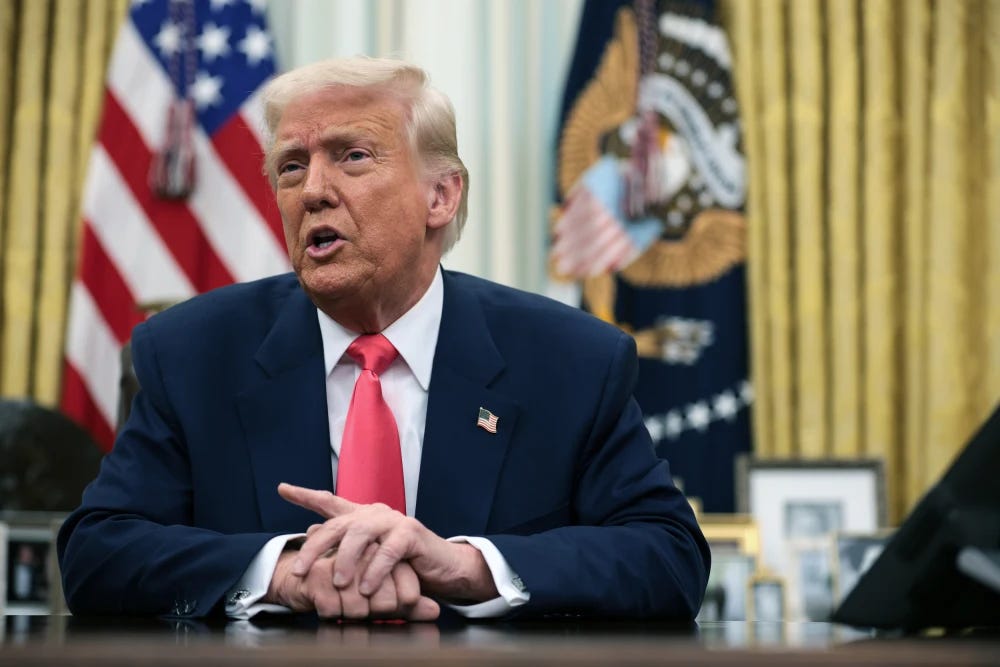Trump invokes rarely-used Alien Enemies Act to Target Venezuelan Immigrants
A federal judge has already limited the Trump administration's ability to deport migrants under the wartime law.
President Trump invoked the Alien Enemies Act to target a Venezuelan gang called Tren de Aragua. This law, which dates back to 1798, allows the president to deport non-citizens from enemy countries during times of war. Critics argue that using such an outdated and controversial law is a dangerous overreach of presidential power.
The American Civil Liberties Union (ACLU) and Democracy Forward quickly responded by filing a lawsuit in Washington, D.C. They argue that Trump's order unfairly labels all Venezuelans in the U.S. as members of this gang, even if they have no connection to it. This could lead to many innocent people being deported simply because of their nationality, a move that many see as discriminatory and unjust.
The lawsuit claims that using the Alien Enemies Act in this way is unconstitutional. The ACLU and Democracy Forward believe that the order violates the principles of equal protection under the law. They argue that it targets people based on their nationality rather than any actual evidence of wrongdoing, which is a clear abuse of power.
This case is significant because it challenges the use of an old and rarely used law in modern times. The outcome could have a major impact on how immigration laws are applied in the future. It also highlights the ongoing debate over immigration policies and the balance between national security and individual rights. Many critics argue that this balance is being tipped too far in favor of harsh and unjust measures.
The judge's decision will be closely watched, as it could set a precedent for how the Alien Enemies Act can be used. If the court sides with the ACLU and Democracy Forward, it would be a significant setback for Trump's immigration policies, which have faced numerous legal challenges over the years. This could be a crucial moment in the fight against what many see as an overreach of executive power.
This case underscores the importance of judicial oversight in ensuring that executive actions comply with the Constitution. It also raises important questions about the limits of presidential power and the protection of individual rights in the context of national security. Critics argue that using the Alien Enemies Act in this way is a step backward for justice and equality.
Update 3/15/25 @ 7:57 AM:
Shortly after the Trump administration announced its plan to use the Alien Enemies Act to deport Venezuelan Immigrants, a federal judge, James Boasberg, issued a temporary restraining order to block the deportation of Venezuelan Immigrants.
This order was granted in response to a lawsuit filed by the American Civil Liberties Union (ACLU) and other civil rights groups.
The lawsuit argued that the administration's use of the Alien Enemies Act was an overreach and that the individuals targeted had compelling asylum claims. For instance, one of the plaintiffs fled Venezuela after being beaten by police due to his stepfather's political activities. The judge's order prevents the deportation of these individuals for two weeks, allowing time for a hearing to further examine the case.
This legal battle highlights the complexities and controversies surrounding the use of such an old and powerful law. It raises important questions about the balance between national security and individual rights, as well as the potential for misuse of executive power.



